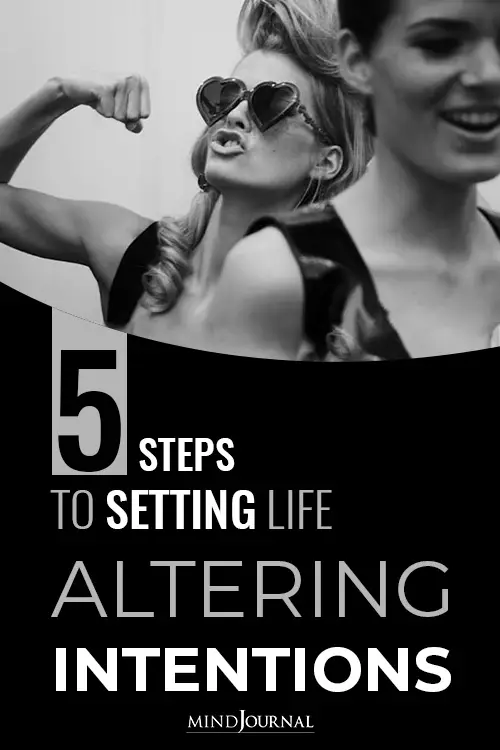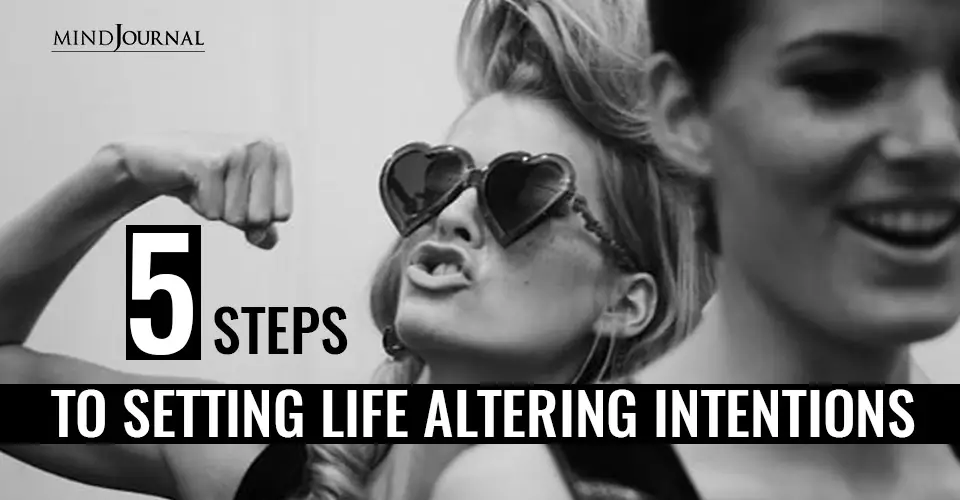When you are working on yourself, and towards positive self-development, the practice of intention setting can tremendously help you in that process.
Intention setting is a life-changing practice. Becoming intentional is to become “on purpose.” By setting intentions, you start to become more aware of thought and behavior patterns each day.
Eventually, the pathways of the brain shift, and throughout the day you will see your intentions manifest. The more energy you put towards your intentions, the more aware you will become.
Getting intentional is an important part of change.
So what is an intention? A lot of people have confusion about what an intention actually is. An intention is different than a goal. A goal has a specific outcome. “I want to be promoted this year” is an example of a goal.
Intentions are more about awareness than they are achievement. “I want to be more present at work” is an example of an intention.
I find intentions are especially important in creating habits. Before I start any new habit I make an intention for it to be part of my life. Setting intentions is an intuitive process that everyone does differently but I’ll share my process with you here.
Here Are 5 Steps For Intention Setting
1. Promise yourself 5 minutes to set intentions every single morning.
When you first get out of bed before you look at your phone or get involved in your morning grind, spend 5 minutes where you are most comfortable. Tell your family you’ll be doing this and ask for respect at this time. Commit to this for 30 days. This space in the morning is where you will set intentions.
Related: The Power of Intentions: Scientific Evidence on How Thoughts Can Change the World
2. Get an intention journal.
For those 5 minutes in the morning start thinking about what emotions you want to experience and what behaviors you want to shift. If you’d like to find more calm throughout the day your intention would be “I will find calm in tense situations.”
If you’d like to experience more joyful moments your intention will be “I will find joy throughout my day.” Writing helps connect the mind with your intention.
3. Stay aware of your intentions.
Think about them throughout the day. Put reminders on your phone. Use post-its on your computer. Just thinking of your intention a couple of seconds throughout the day will shift the pathways of the brain. It’s important to give yourself convenient reminders.
4. Celebrate moments where you are being intentional.
In moments where you are present and aware of the intention you’ve set, reward yourself. Take a moment to honor the fact that your intention is in your mind and that you’re having newfound awareness.
Related: 3 Things You Need To Start Believing in Yourself
5. Start with small intentions and build foundation.
If you’ve never set intentions before, it will take the mind a period of time to adjust. It’s best to start with a small intention that you feel fully confident you can see through.
After the first 30 days, you can start with a new intention and continue creating intentions. This will get you into a flow and you’ll start to see your intentions manifest more quickly.
Written By Nicole LePera
Originally Appeared In The Holistic Psychologist
Intention setting can help you get a better understanding of yourself, develop many positive habits, and overall help you to be a calmer and more grounded person. This practice will instill self-confidence, and self-belief, which will help you progress and be a better version of yourself.
If you want to know more about intention setting, then check this video out below:









Leave a Reply
You must be logged in to post a comment.